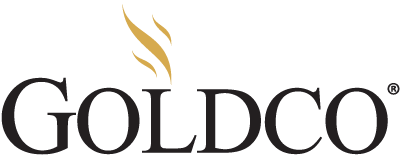Disclosure: Some of the links in this article are from sponsors. The list below is an honest review gathered from thorough research, experience, and consumer-based feedback.
Best Overall

5/5 Rating
#2 Choice

4.5/5 Rating
Finding the Right Gold Investing Strategy for You
Gold ETFs v Gold Mutual Funds
Gold ETFs are a popular investment vehicle that is becoming more and more common among investors.
There are some key differences between Gold Mutual Funds and Gold ETFs, which may make one of these investments better for you than the other.
In this post, I will compare the two options so that you can decide what's best for your portfolio.
Gold ETFs are traded like stocks but hold physical gold.
Gold Mutual funds are managed by a fund manager who invests your money in stocks, bonds, and other assets.
Gold Mutual Funds
Gold Mutual Funds are managed by a professional who allocates your money to investments such as stocks, bonds, or other assets.
Gold-managed funds allow you ownership of unallocated gold that is not stored anywhere and may receive different returns than gold ETFs.
Long Term Investing: Gold Mutual Funds.
If you are looking to buy and hold physical gold for an extended period of time, look into gold mutual funds.
Fees for these types of funds tend to be lower than Gold ETFs which may save you money over the long run.
Also gold mutual funds are insured making them suitable for long-term investments.
If your mutual fund becomes insolvent, there is a chance you may lose some of your money because of insurance.
Gold ETFs are not backed by insurance if the company holding gold for you goes under. Gold Mutual Funds are insured in some cases up to $500,000 per account.
Another great long term investing strategy would be investing into a gold IRA.
You can hold both ETFs and mutual funds in your gold IRA, and you can even fund it originally by doing a 401(k) rollover to a gold IRA.
If you don't have a 401(k) but do have another traditional IRA account, check out my gold IRA rollover guide to learn more.
 | $50,000 Minimum Investment Free portfolio reviews for all clients | *Most Professional *Best Pricing |
Gold ETFs
Gold ETFs are often backed by gold bars stored in vaults owned by the fund company or other financial institutions.
You can own fractions of an ounce of physical gold that is held for you by the company.
Gold ETFs are a way to buy and hold gold in your investment portfolio.
Selecting between gold ETFs and gold mutual funds can be a bit tricky, but in general, it is wise to make your selection with a long-term investment strategy in mind.
Short Term Trading: Gold ETFs.
Gold Mutual Funds allow you to buy and sell during the day when the markets are open.
Gold ETFs do not allow you to trade during the day when markets are open, but they are traded at market value just like stocks.
Gold ETFs can be bought and sold easily and at any time during market hours.
If you are planning on trading your gold investments frequently, then perhaps Gold ETFs will better suit you.
This way you can invest in gold without having to worry about the physical product and if it's safe in the gold IRA depository.
However, if you are looking to buy and hold physical gold for an extended period of time, look into gold mutual funds. Fees for these types of funds tend to be lower than Gold ETFs which may save you money over the long run.
Liquidity
Gold ETFs are more liquid than mutual funds since they can be bought and sold just like a stock on the exchange during the trading day which makes gold ETFs more accessible to individual investors looking for an alternative way to invest in gold.
Investment Minimums
Gold mutual funds will often not have an investment minimum since they are actively managed by a fund manager. Investing with less than $5,000? A mutual fund might be a good option.
Gold ETFs may require you to invest $50,000 or more if you want to get started buying physical gold at one time.
Transaction Cost
Due to high demand and a low number of shares available for trade, an ETF generally has a lower spread than a mutual fund.
This means that there are fewer expenses when buying or selling it on the market.
Gold mutual funds are actively managed by a fund manager which means transaction fees must be paid to the fund manager.
Tax Advantages
Gold ETFs are not considered collectibles for tax purposes which can offer investors a significant advantage when compared to gold mutual funds.
Because of this, capital gains earned on a gold ETF are taxed at a lower rate than if you held a mutual fund in your portfolio.
Read up on gold ETFs vs Gold Futures to learn more about possible options.
Expenses
Usually, Gold ETFs have a low expense ratio which is a smaller percentage of your total holdings. That's good news considering that expenses eat into your returns every year.
Gold mutual funds will generally have higher annual expenses than an equivalent gold ETF, up to 3% per year.
Mode of Investment
Gold ETFs and mutual funds can both be used as a way to invest in gold, but there are still some differences.
Gold ETFs trade like stocks on the market and mutual funds invest your money into other assets.
The other major difference between the two is that gold ETFs hold physical gold while mutual funds do not.
Frequently Asked Questions
A gold exchange-traded fund is a mutual fund that invests in physical bullion. A gold ETF is part of a group of mutual funds that are available for purchase on an exchange, just like stocks.
Gold ETFs allow you to diversify your portfolio. Like other mutual funds, they provide a basket of securities that you own proportionally to the number of shares that you purchase.
You can buy and sell these types of funds like stocks on the market. You can purchase them through your broker or financial advisor, who will make sure that it complements your portfolio.
With mutual funds, you own shares of the company. You can sell your shares on the market, but if you want to take possession of the bullion you must sell your shares and ask for delivery of the gold. With an ETF, you own shares that represent ownership in a fund that has possession of the physical metal.
1) You can buy or sell with ease;
2) More liquidity (can be bought or sold without disrupting price);
3) Lower expense ratios compared with mutual funds;
4) ETFs don't require storage.
1) Transactions costs such as brokerage commissions when buying and selling
2) No ability to lend out the metal
3) No ability to add gold to your portfolio at a later date
4) Limited choices of gold ETFs.
1) Mutual funds give you more diversification because they invest in multiple securities rather than just holding physical bullion
2) Gold mutual funds often have lower expense ratios compared with a gold ETF
3) You can add more money to a fund without disrupting the price of your holdings.
1) Mutual funds require storage, which means you'll be responsible for fees to hold them.
2) No ability to lend out the metal.
More FAQ
Why should I invest?
The price of gold has historically been a good indicator of inflation over the past 20 years. As an investment, Gold ETFs/Mutual Funds can be used like other assets to diversify your portfolio.
What is the difference between buying physical gold vs investing in Gold ETFs or Mutual Funds?
Gold ETFs and Mutual Funds are popular investments that can be used to diversify your portfolio with Gold.
When you buy gold ETFs or mutual funds, your return will depend on the price of gold as well as how the underlying assets perform throughout the year.
How do I redeem or sell my shares?
You can redeem or sell your mutual fund like you would any other stock on the market. You will receive the net asset value of your ETF the market price for each share that you hold.
 | $50,000 Minimum Investment Free portfolio reviews for all clients | *Most Professional *Best Pricing |
